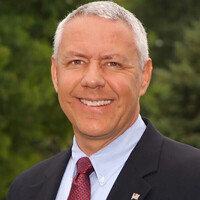Which better prepares students for success in the workforce — a four-year degree in a field such as sociology or anthropology and tens of thousands of dollars of student debt, or a more targeted degree focus from a career college in a field such as health care or information technology, with hands-on work experience?
For many students and parents, career colleges offer a value and path to a well-paying career that four-year schools often struggle to rival.
Career colleges, often referred to as vocational schools or technical colleges, are gaining popularity among Americans. And for good reason. These schools provide more specialized curriculum and emphasize hands-on career training to prepare students for the workforce, often at a significantly lower cost than traditional four-year institutions. But despite their popularity and the value these institutions provide to America's future workforce, the state of Colorado continues its attempts to litigate many of these schools out of business.
For more than a decade, the state of Colorado has engaged in a legal battle against the Center for Excellence in Higher Education, charging that this nonprofit organization and the four colleges it operated were "not designed for student success." One of the schools CEHE founded and ran was CollegeAmerica, with a main campus in Denver.
CollegeAmerica, because of Colorado's reckless regulatory enforcement, closed its operations in September 2020, and has ceased to offer any student programs since then.
This institution, including its Denver campus, provided career training to more than 11,000 students annually, offering 41 degree programs across a wide range of professional areas, including 15 degrees in health care, 13 business degrees and nine degrees in information technology.
Colorado borrowed a familiar strategy for shuttering this school. Using inflated claims against the institution, the state was able to initiate legal action, thereby entangling the school in a protracted court battle. Even where this approach fails in the courtroom, it nevertheless has the effect of eroding public confidence in the school, reducing enrollment and often forcing the school to shut its doors.
This same strategy was on display in Florida two years ago when the Biden Department of Education cut all federal student aid to Florida Career College, a school that specializes in short-term health care and trades certifications.
Washington, D.C.'s attacks on these institutions began during the Obama administration, when his administration officials sought to scapegoat career colleges in the broader effort to usher in "free college" for everyone.
The Biden administration promptly followed suit, first attempting to forgive $400 billion in student loans. Americans disapproved this executive fiat to cancel student debt, and the Supreme Court ultimately ruled against Biden's initiative. Not willing to give up the fight, the Biden administration then pivoted to a witch hunt against schools with which it disagreed.
In a sharp contrast with both the Obama and Biden presidencies, President Donald Trump has pledged to restore local control and provide students and their families with the ability to choose schools and programs that best meet their professional and academic goals, rather than concentrating that authority with unelected political appointees in Washington. And not surprisingly, an overwhelming number of Americans agree with this approach.
Colorado taxpayers were forced to fund this wrong-headed attack on a vital education service, and the Colorado Court of Appeals will soon issue its next ruling. This ruling could usher in a new era of greater choice and value for students and parents across the state.
Recent polls demonstrate the necessity of choice in higher education. Many Americans don't believe a conventional four-year degree is worth the cost, and a stunning 85% of recent grads say they wish their undergrad experience had better prepared them for the workforce. Career colleges are an answer to both grievances.
The state of Colorado should discontinue its politically motivated assault on these vital education programs. The state's pursuit of this case, even after CollegeAmerica has ceased its operations, is a flagrant waste of state taxpayer dollars.
Ken Buck served in the United States House of Representatives from 2015 to 2024 representing Colorado's 4th congressional district. To find out more about Ken Buck and read features by other Creators Syndicate writers and cartoonists, visit the Creators Syndicate website at www.creators.com.
Photo credit: Priscilla Du Preez ???????? at Unsplash






View Comments